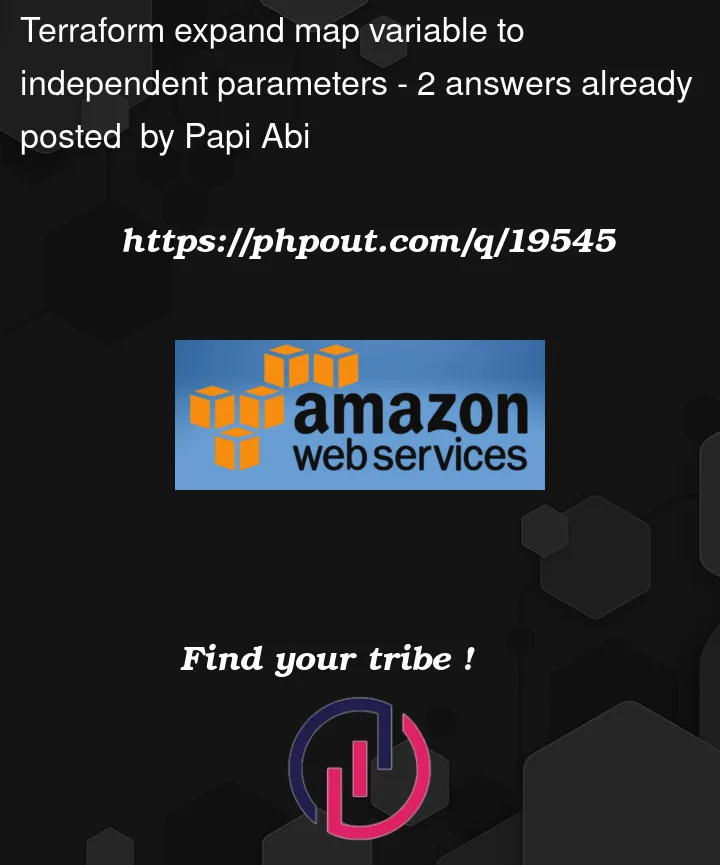I’ve the following variable:
variable "mymap" {
type = map(string)
default = {
"key1" = "val1"
"key2" = "val2"
}
}
I am trying to expand this to create individual parameters in this resource:
resource "aws_elasticache_parameter_group" "default" {
name = "cache-params"
family = "redis2.8"
parameter {
name = "activerehashing"
value = "yes"
}
parameter {
name = "min-slaves-to-write"
value = "2"
}
}
My desired state for this example would be:
resource "aws_elasticache_parameter_group" "default" {
name = "cache-params"
family = "redis2.8"
parameter {
name = "key1"
value = "val1"
}
parameter {
name = "key2"
value = "val2"
}
}
I don’t see this supported explicitly in the docs; am I even taking the correct approach to doing this?
(I’m mainly looking at leveraging ‘dynamic’ and ‘for_each’ keywords, but haven’t been able to have success)




2
Answers
To achieve the desired state, you would have to do a couple of things. One could be to use
dynamicmeta-argument [1] withfor_each[2]. The code would have to be changed to the following:However, you would also have to adjust the variable:
Then, you can define the values for the variable
mymapin a tfvars file (e.g.,terraform.tfvars) like this:[1] https://developer.hashicorp.com/terraform/language/expressions/dynamic-blocks
[2] https://developer.hashicorp.com/terraform/language/meta-arguments/for_each
You can use a
dynamicblock to dynamically declare zero or more nested configuration blocks based on a collection.The above tells Terraform to generate one
parameterblock for each element ofvar.varmap, and to populate thenameandvaluearguments of each generated block based on the key and value from each map element respectively.The
parametersymbol inside thecontentblock represents the current element of the collection. This symbol is by default named after the block type being generated, which is why it was namedparameterin this case. It’s possible to override that generated name using an additionaliteratorargument in thedynamicblock, but that’s necessary only if you are generating multiple levels of nesting where a nested block type has the same name as its container.